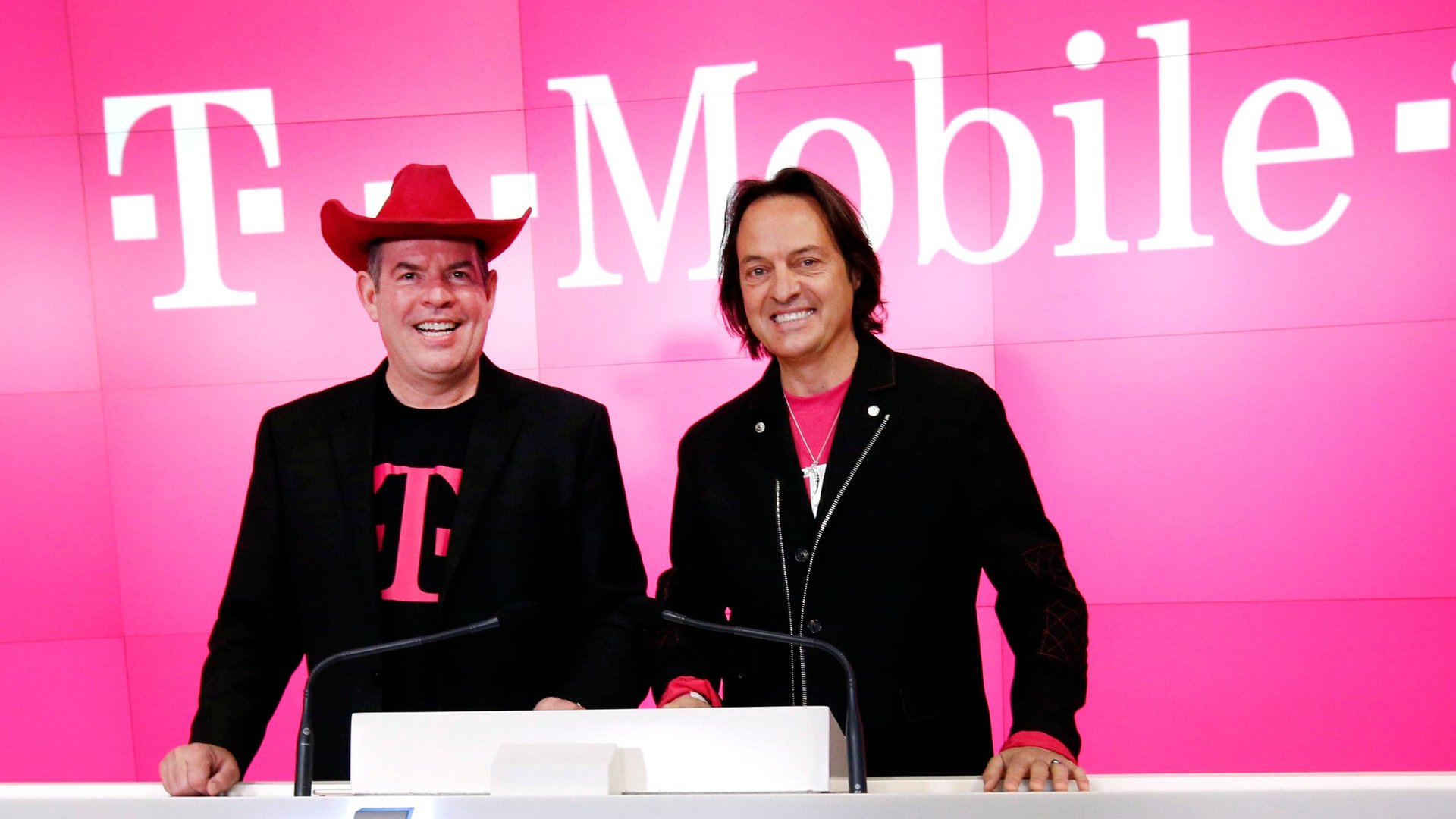Can T-Mobile keep pushing the limits on data caps?
Rumors are flying that T-Mobile, which has surpassed Sprint to become the third-place wireless carrier in the US, plans to announce it will exempt streaming-video services including Netflix and HBO from its consumer-data caps.


Rumors are flying that T-Mobile, which has surpassed Sprint to become the third-place wireless carrier in the US, plans to announce it will exempt streaming-video services including Netflix and HBO from its consumer-data caps.
The decision would reinforce the company’s consumer-friendly campaign—it also exempts music-streaming services from data caps. But it could raise the ire of US telecom regulators, who ruled earlier this year that mobile network operators would have to abide by the same network neutrality rules as broadband cable operators.
That means special treatment for different kinds of data is forbidden: No blocking, no discrimination, no paid prioritization, as the mantra goes.
One big concern for mobile operators is zero-rating, the practice of allowing certain kinds of data to be exempt from data caps that determine what a consumer is charged for a connection and, sometimes, its quality. While many open internet advocates question zero-rating, the FCC ultimately decided to deal with it on a case-by-case basis, essentially waiting for complaints from market participants or consumers.
In developing economies, zero-rating has allowed mobile operators to provide access to popular services like Facebook, while raising questions about anti-competitive practices. In the US, the practice is used less to build basic access and more to fight for market share. T-Mobile has operated its Music Freedom service as a loss-leader to attract customers who stream music and get dinged by data charges at other companies.
On its face, this looks like a violation of net neutrality—prioritizing one kind of data (audio) over other kinds for reasons other than reasonable network management. But T-Mobile has taken two key steps to avoid problems: No money changes hands with the music services involved (it’s not paid prioritization) and virtually any streaming audio service can participate, from giants like Spotify to less well-known competitors like Radio Pup.
“It’s free to everyone—customers and streaming providers alike, and any streaming service can participate by just contacting us and meeting technical requirements so we can identify their incoming music stream,” Janice Kapner, a T-Mobile spokesperson, told Quartz. “We are 100% behind a free and open Internet. Customers love Music Freedom. We have no reason to change it and fully expect the government will not interfere with our Un-carrier moves in the future.”
As to rumors of a similar plan streaming video, T-Mobile declined to confirm or deny them ahead of a November 10 press event. But should video traffic be exempted from data caps, it is likely to attract more attention from regulators and competitors alike.
Video is a significantly larger share of a data traffic than audio, so exempting it would mean a larger up-front cost to the company. Presumably, any effort in that medium would duplicate the no-money-changing-hands and all-aboard policies of Music Freedom, avoiding a direct question of anti-competitive zero-rating.
But open internet advocates point out that giving away such a huge chunk of data use on the cheap reveals the lie behind data caps in general. Critics of wireless companies have long suspected data caps aren’t so much a tactic to manage network congestion by getting heavy users to pay more, but a billing technique to squeeze higher prices from customers.
“If you’re telling me I can stream as much video as I want, from some partners or from everybody, it becomes more meaningless as a cap overall,” says Matt Wood, an attorney at the non-profit Free Press. “It blows a hole in the idea that this is tied to network management, not the carrier picking and choosing what works better and what costs more. Use as much data as you want up to a cap, that is neutral… [but] when the carrier says some data counts and some doesn’t, we worry about this skewing market and skewing people’s usage toward certain kinds of applications.”
More scrutiny over how data caps are implemented will matter beyond the mobile realm. Just as wireless companies are making their money from data, not telephone calls, cable telecom providers like Comcast and Time Warner Cable are increasingly reliant on data charges over traditional television, thanks to cord-cutters and the great convergence. These fixed-line cable telecom companies are starting to experiment with their own capped data plans, raising questions of their own about whether caps are reasonable management or an insidious attempt to slow down the pace of people abandoning their cable TV subscriptions.